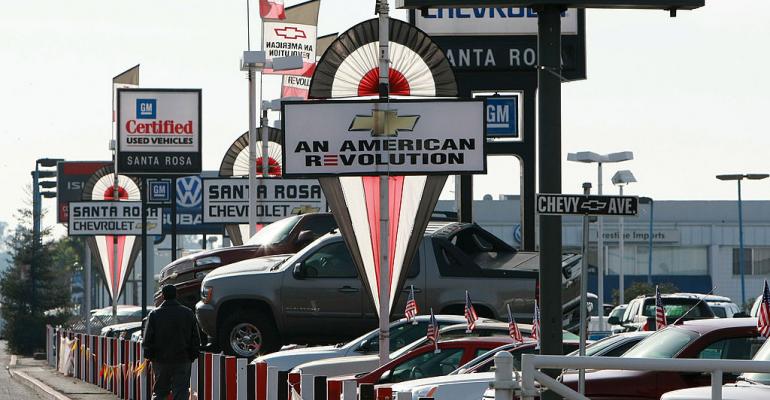Under California law, taxable value of property can increase up to 2.0 percent per year, regardless of market conditions. If an auto dealership was purchased in 2006 for $10 million, the assessed value by 2016 would be close to $11.6 million. The property owner would save more than $165,000 by appealing each tax year since 2009.
Sales prices for auto dealerships from 2006-2016 compared to taxable values, or factored base year values, over the same period:
Approximately 10.0 percent of all sales involve business value of some type. About 10.0 percent of all sales are redevelopment projects where an auto dealership is being converted to a different use. This is a result of auto dealership compression: as the economy reached a new normal after the Great Recession, reduced amounts of consumer spending meant that fewer dealerships were needed to meet the needs of consumers. Thus, some auto dealerships closed to improve the efficiency of the auto dealership market.
When the auto dealership market was severely depressed, many owner-users took advantage of the lower prices to purchase their real estate and this represented more than 70.0 percent of auto dealership purchases. As the market recovers, the rising prices exclude owner-users from the market, who currently represent only 22.0 percent of auto dealership purchases. In 2016, southern California dealerships are still not back to 2006 price levels. U.S. consumer spending on durable goods, an indicator of auto sales, fell 1.5 percent from February 2015 to February 2016.
Joseph Reinagel serves as CEO of CRE Tax Appeal, a San Diego-based real estate consultant firm.

